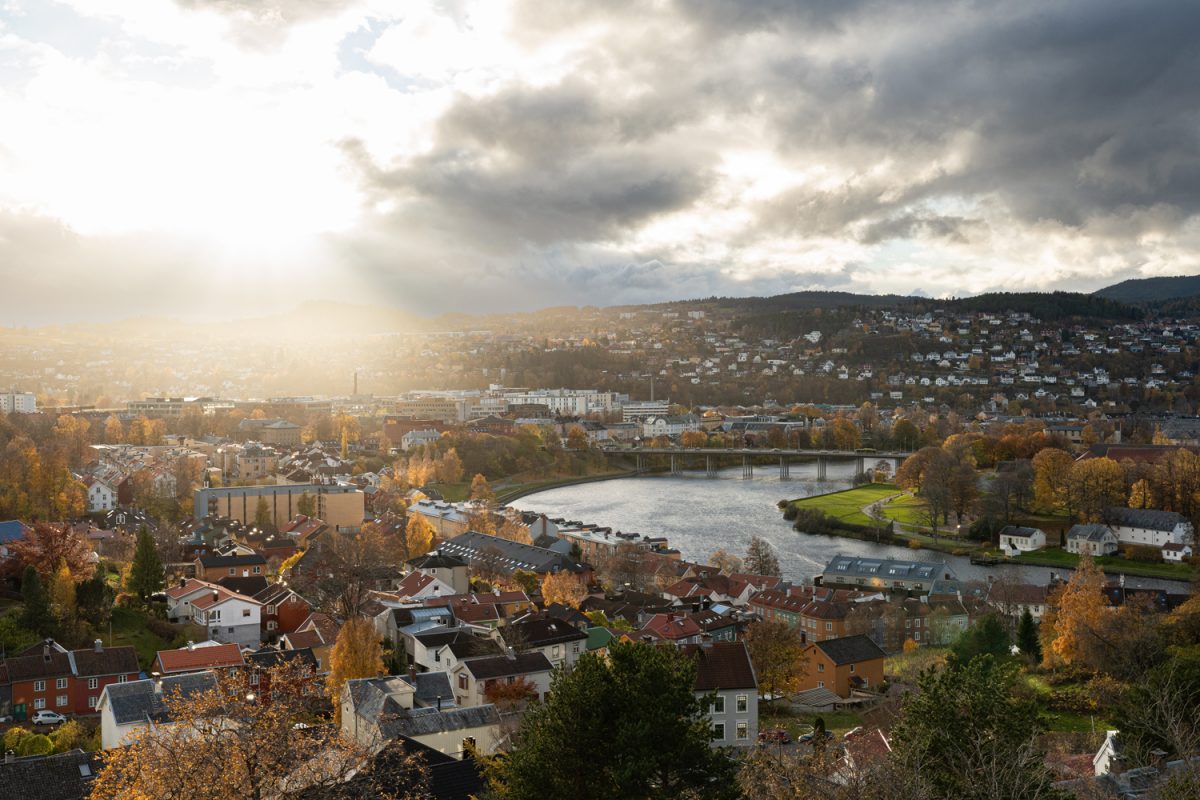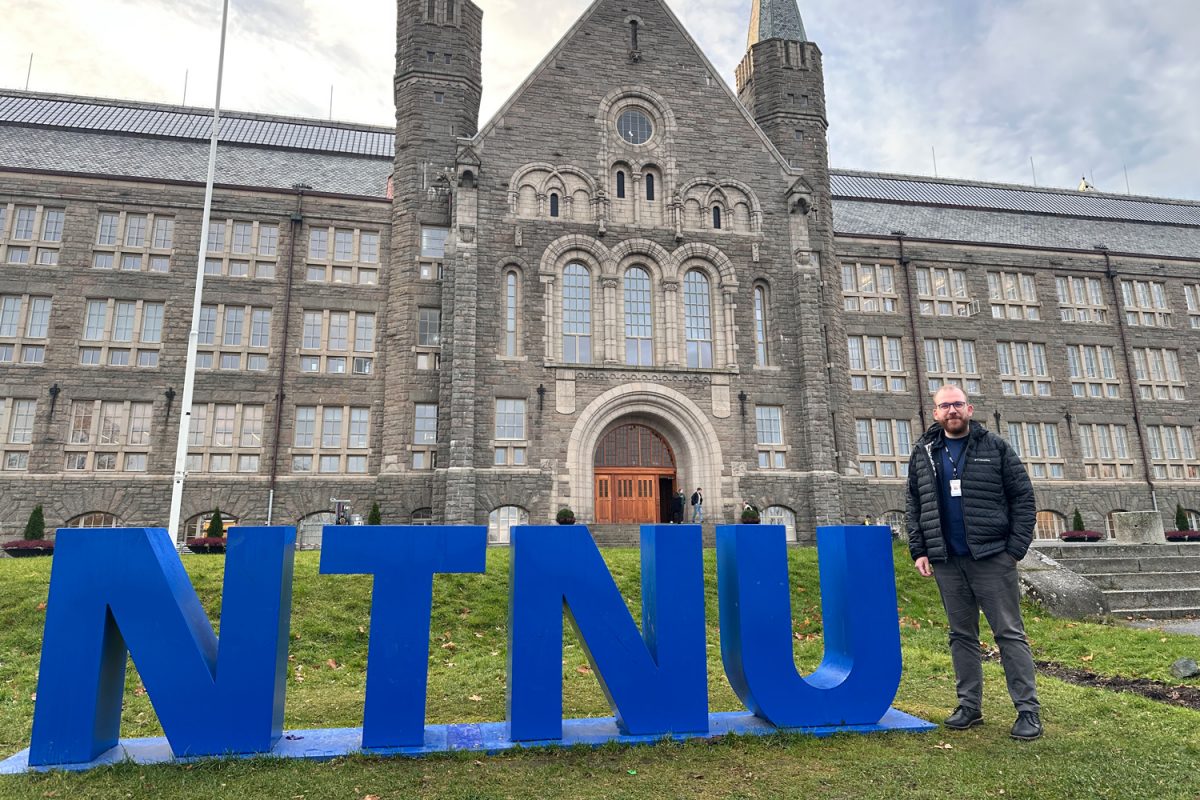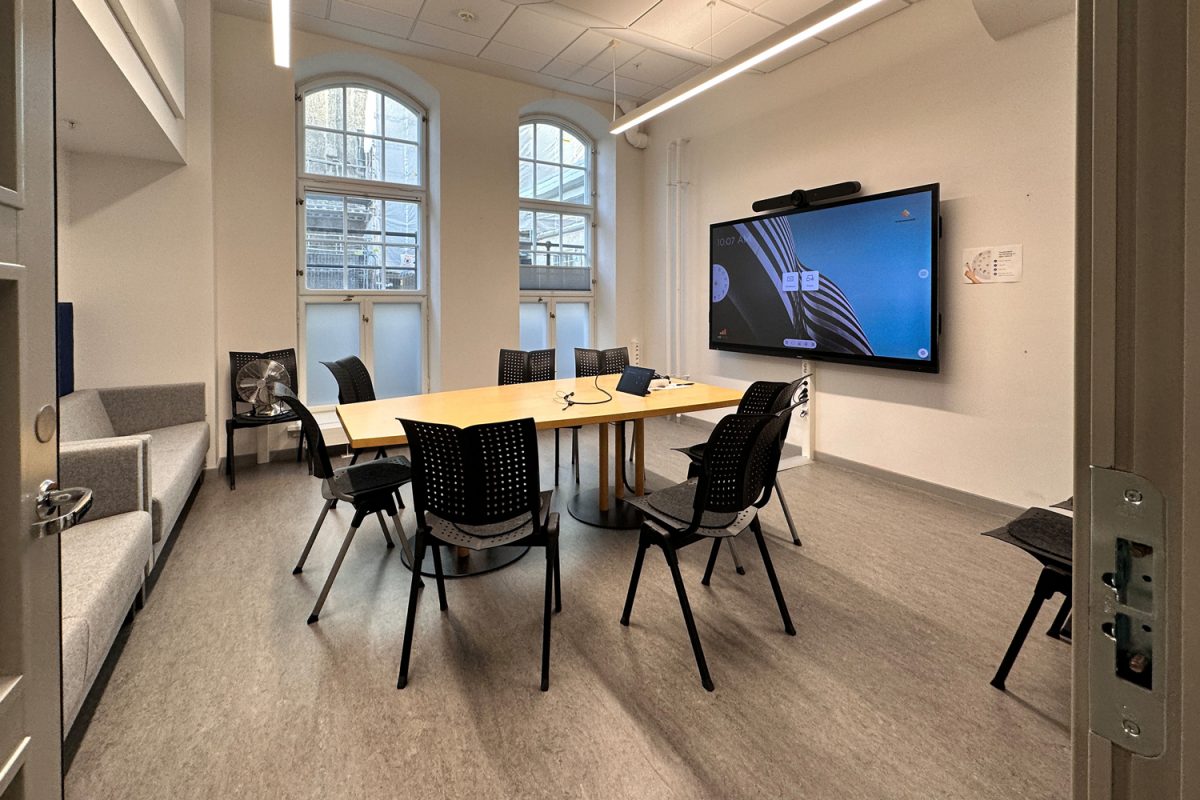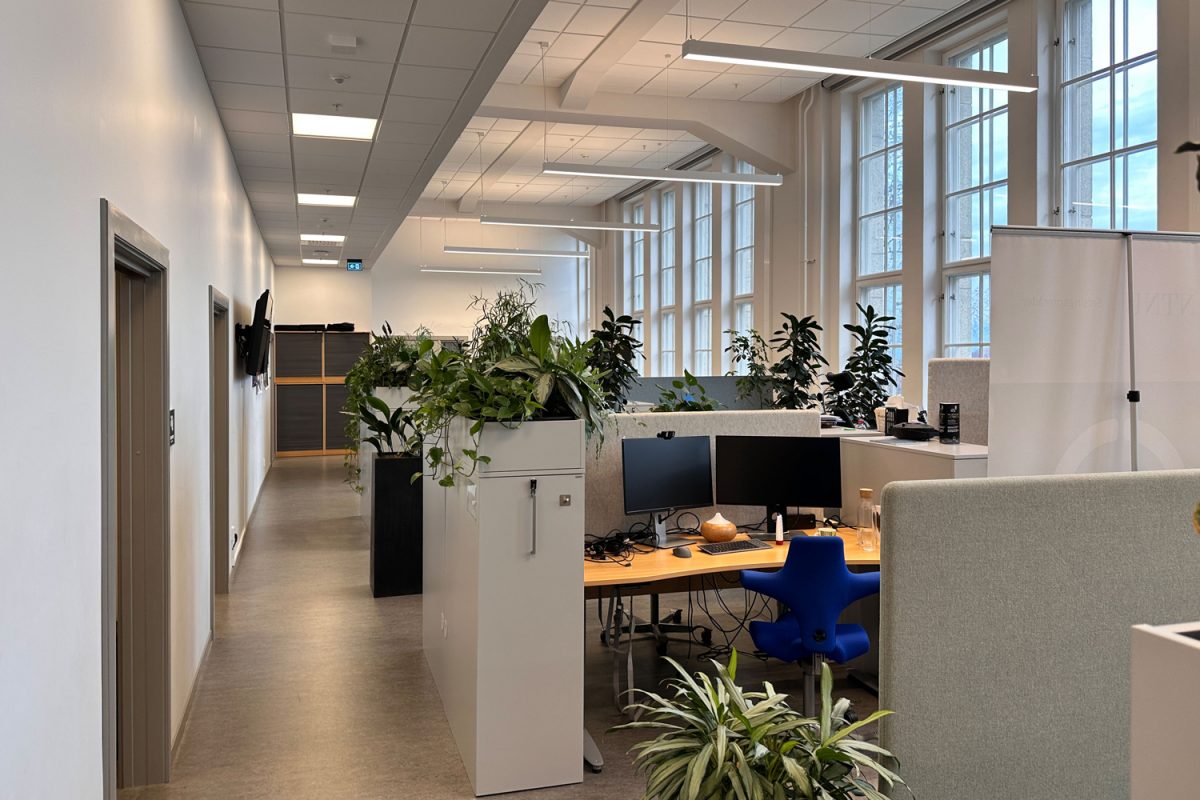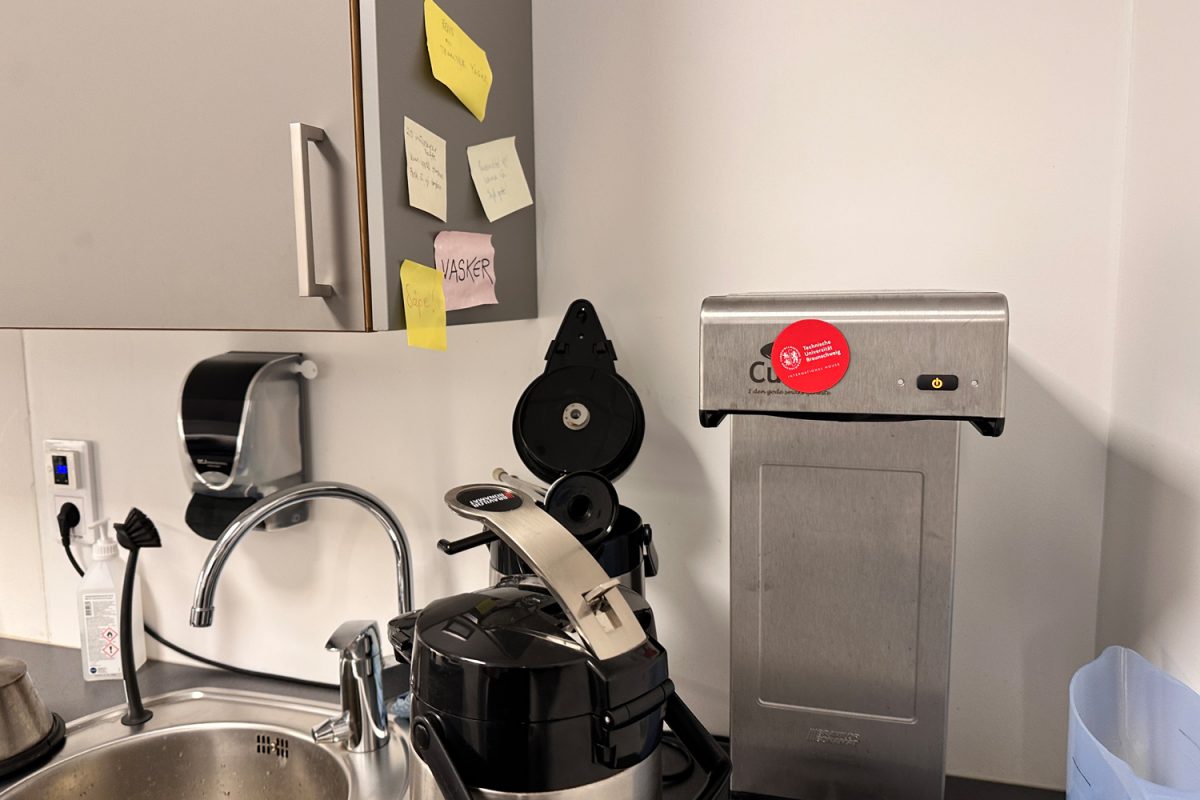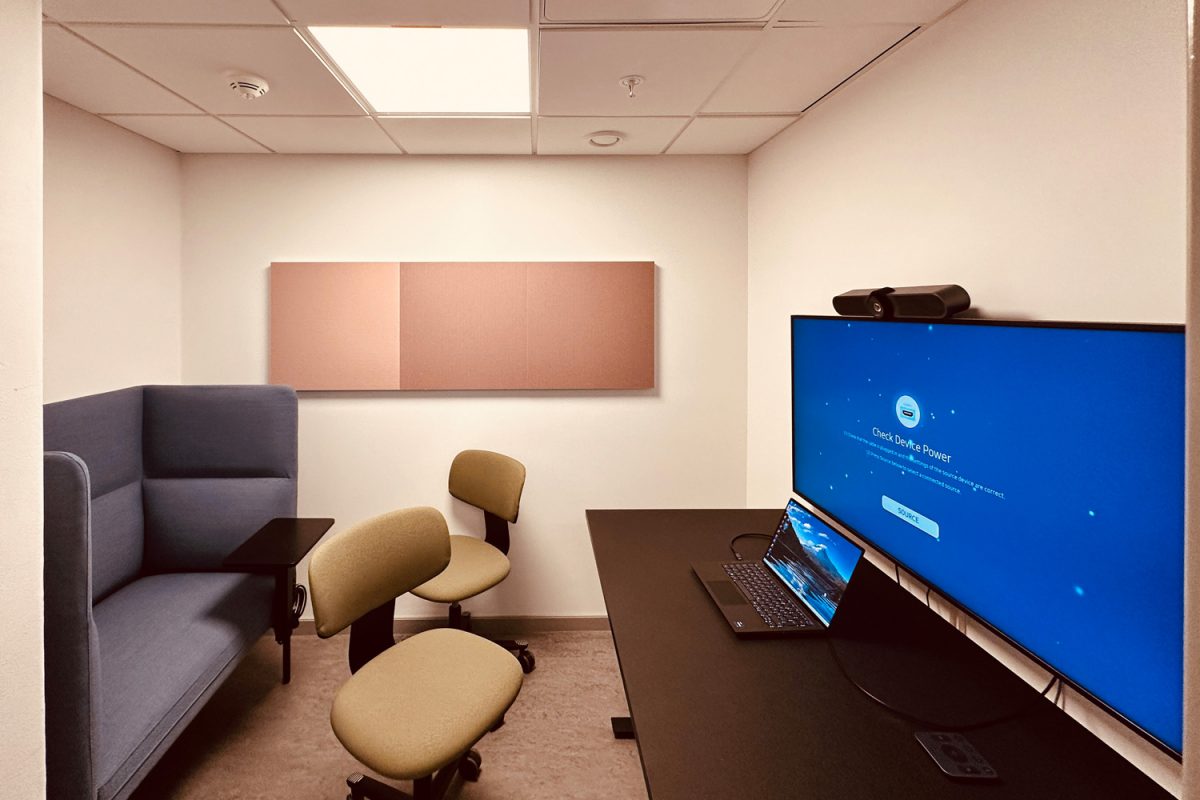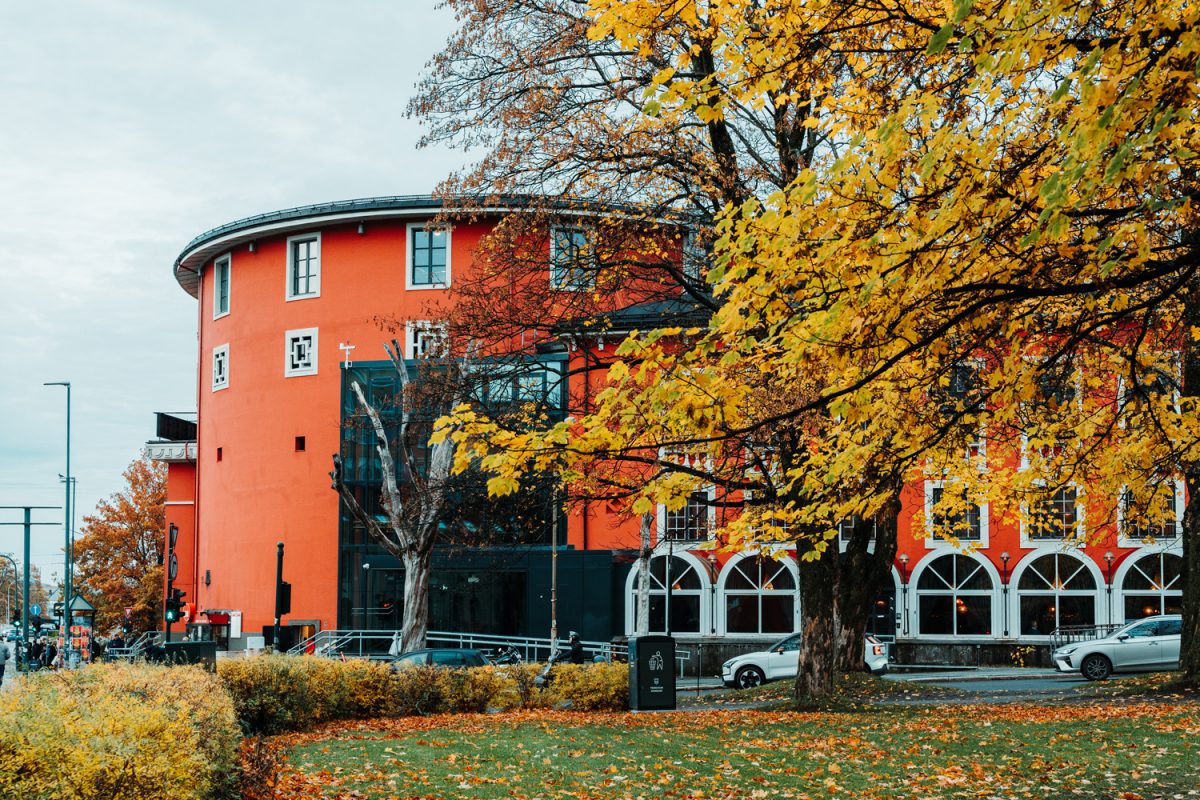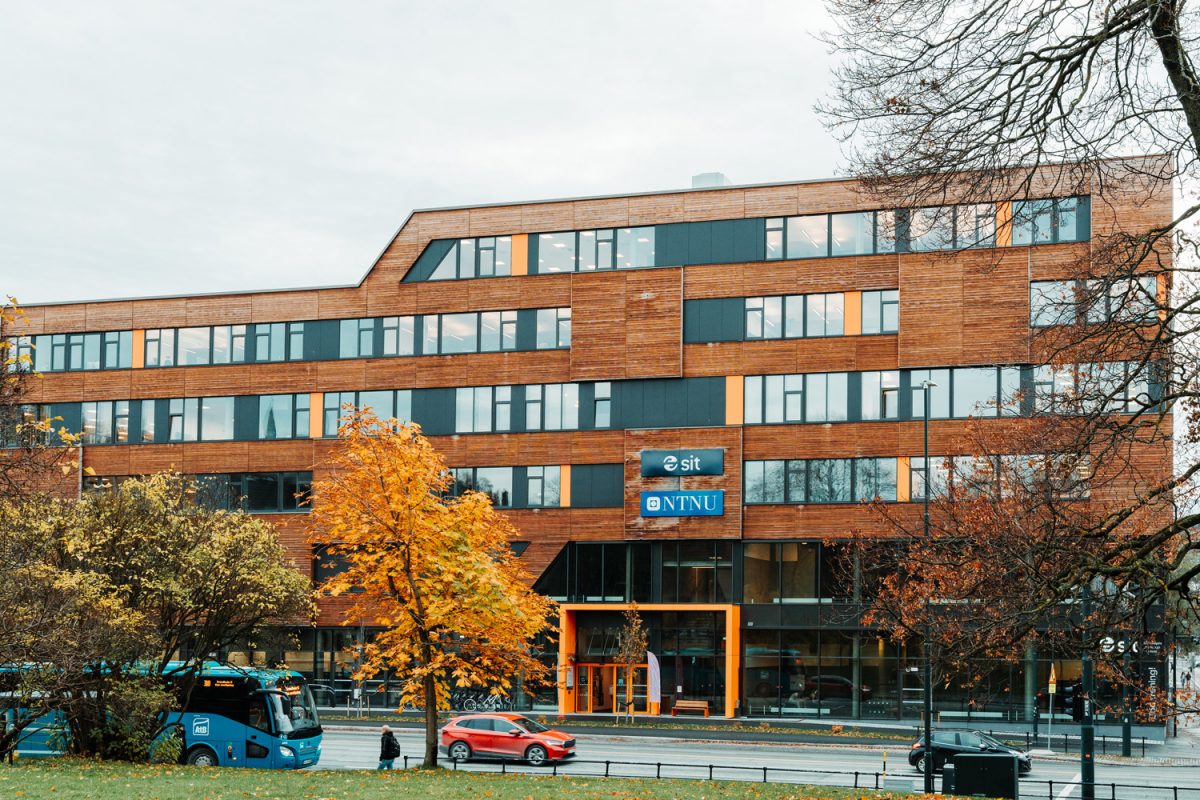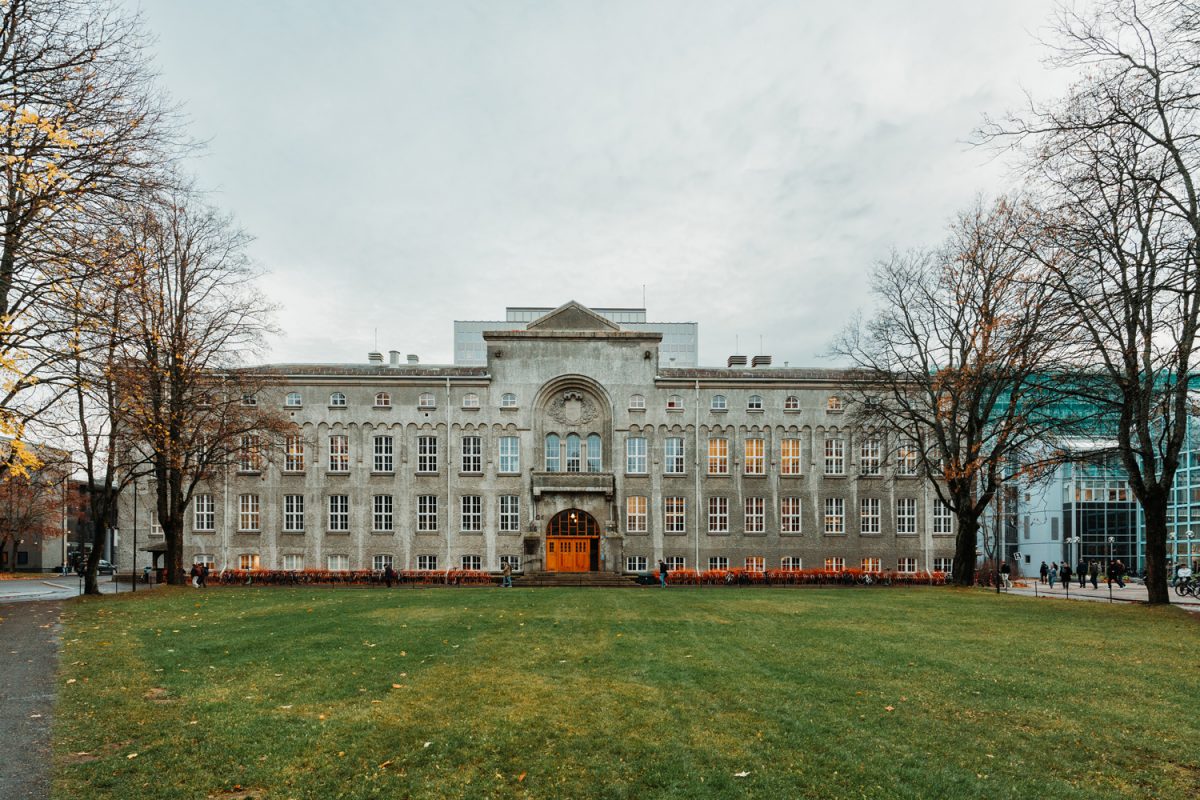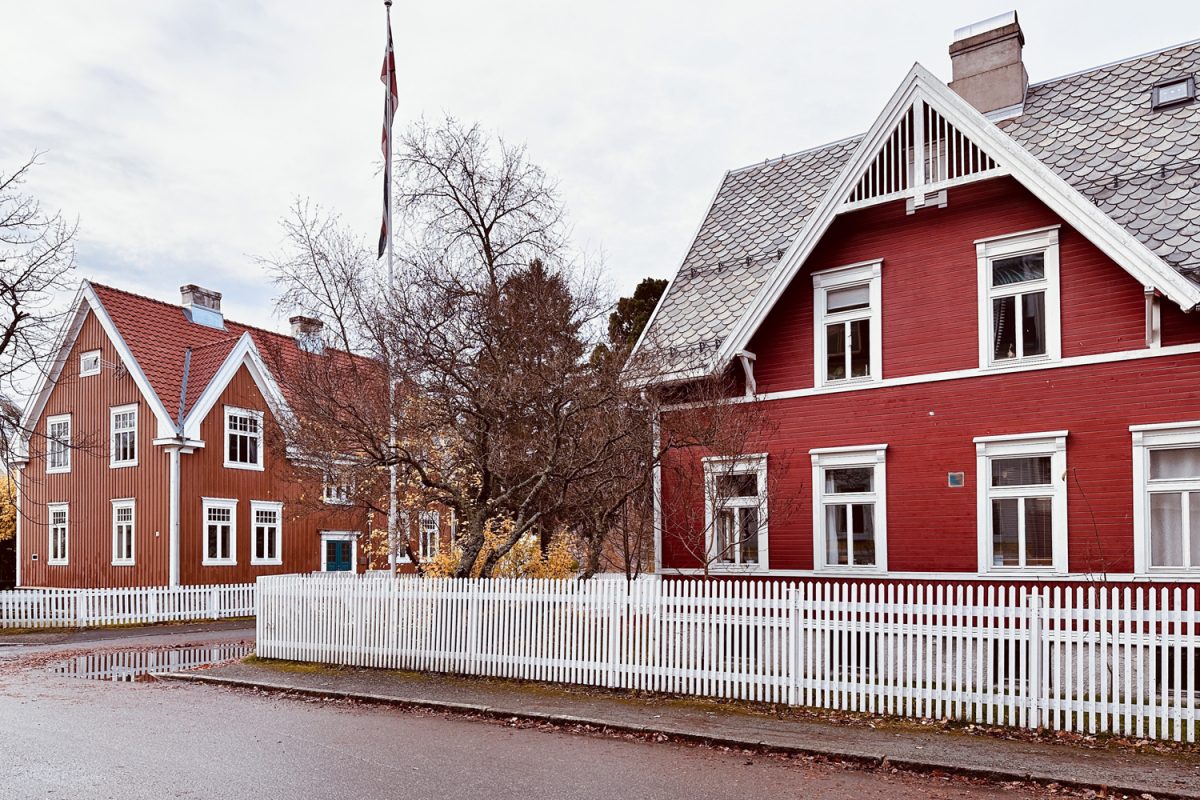Mail from … Trondheim TU employee Daniel Götjen reports from Norway
General Information
That’s why I decided to go abroad:
On the one hand, some of my colleagues have already completed staff exchange visits and gained exciting insights in the process. On the other hand, the opportunity to gain international experience in a professional context was very attractive for me and thus gain new perspectives both for my subject matter and for collaboration within the university.
Here’s how I organised my stay abroad:

The old NTNU building is very impressive and could be straight out of a well-known novel about a young wizard, both from the outside and the inside. Picture credits: Daniel Götjen/TU Braunschweig
Thanks to the detailed information provided by the Mobility Office and the experiences of my colleagues, I was well prepared to start looking for a possible destination. The Norwegian University of Science and Technology (NTNU) Trondheim was quickly found and contact was made easily. Once I had discussed the general details with my contacts at NTNU, e.g. the time of my stay and my general interests, I was able to organise my business trip, accommodation and flights well in advance. In the months and weeks leading up to my stay, I then finalised my plan for the five days on site together with my NTNU colleagues.
These challenges or particularly positive experiences arose during the organisation:
The planning of my stay went smoothly. I found it particularly positive that my contacts in Trondheim had prepared a varied programme: I met many colleagues from the internationalisation and communication sector, which fits in well with my work at the International House. I was also given an extensive tour of Trondheim and the various campuses and attended the weekly team meeting, among other things. All of this was planned in advance, so the framework plan for my stay was finalised early on. When I arrived, we then added only a few things to the plan.
That’s how I prepared for my stay abroad:
To make planning easier for my hosts, I spent a long time beforehand thinking about what I wanted to focus on during my stay and what I was particularly interested in at NTNU. Of course, as it was my first trip to Norway, I also informed myself about the country, the customs and the university.
How long does the stay last and which programme was used?
As a TU employee, I received funding for Erasmus+ Staff Mobility and spent one working week at NTNU.
Local life
That’s how I lived in Trondheim:
I lived in a privately rented flat, five minutes from the campus and in a very quiet, typically Norwegian neighbourhood. Norway is considered a very expensive country, which also applies to the cost of living and accommodation. You should bear this in mind when planning your trip.
How does everyday working life at NTNU Trondheim differ from that at TU Braunschweig?
The working day is relatively similar to ours. Most people start between 08:00 and 09:00 in the morning, but usually finish work a little earlier. As the employees there can also work from home up to two days a week and because NTNU has locations 300 to 400 kilometres away in Ålesund and Gjøvik, meetings often take place in hybrid form in very well-equipped rooms. Everyone from administrative staff to the university’s Executive Board works in large, open-plan rooms, often with up to ten or twelve desks. For me, the early lunch break was unusual in everyday working life: lunch was served at around 11.30 a.m. at the latest with food we had brought ourselves.
What was your after-work time like in Trondheim?
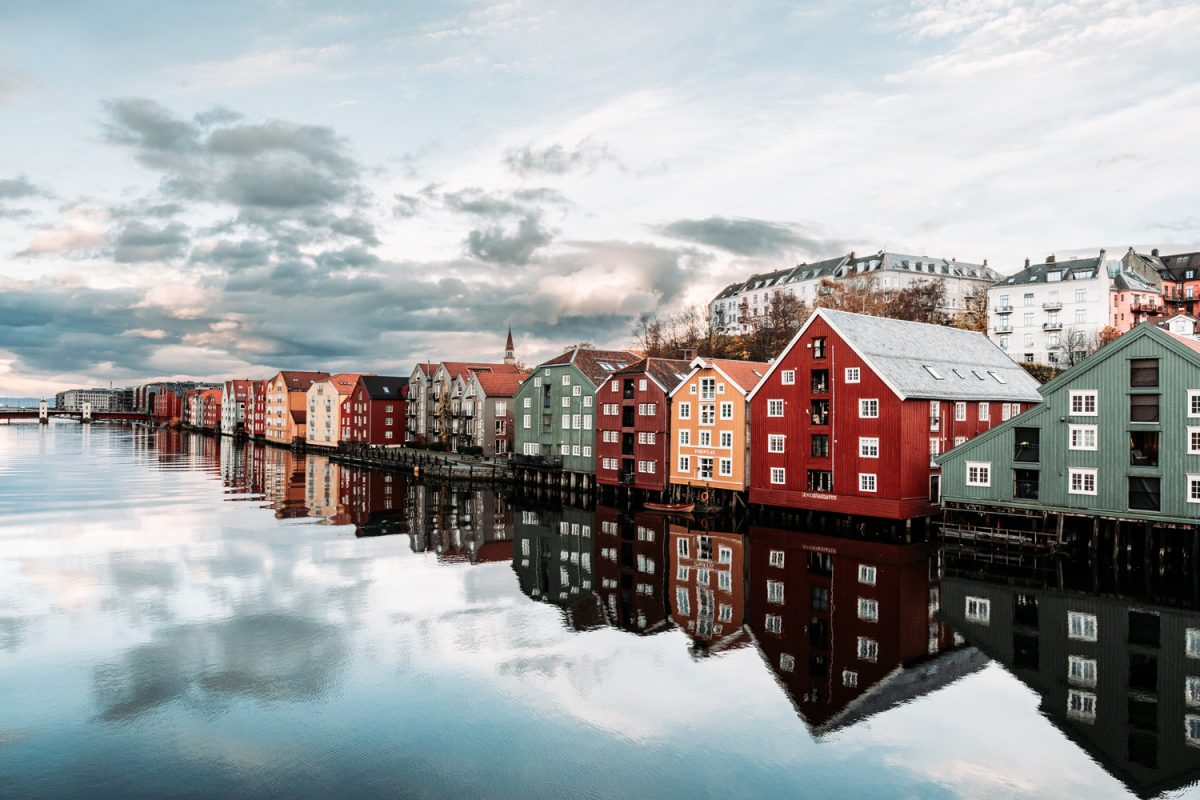
The colourful wooden houses by the river Nidelva are a popular photo spot. Picture credits: Daniel Götjen/TU Braunschweig
Trondheim is a very beautiful city of a similar size to Braunschweig. So I was happy to pack my camera after work and explore the old fortress ‘Kristiansten festning’ above the city and the historic centre on foot. There are lots of small cafés, pubs and restaurants here and my local contact took a lot of time to show me around. As winter is just around the corner, it gets dark early and cold quickly.
The biggest challenge during my stay:
It was quite difficult to get to grips with the Norwegian language in such a short time. There are certainly similarities to the German language, but without knowledge of Norwegian, conversations with locals or ordering in a café almost automatically take place in English. Fortunately, most people here speak English so well that communication was never a problem.
Good to know
This is a local dish you definitely have to try:
There are some typical dishes from the region. However, I particularly recommend the famous ‘brunost’ cheese – a brown cheese known for its caramel flavour. A visit to a café or bakery is worthwhile for cinnamon buns or ‘bolle’, sweet rolls made from yeast dough.
This is particularly typical for Norway:
Flat hierarchies are typical of Norway. This is reflected, for example, in the fact that everyone from the university office to the Minister of State addresses each other on a first-name basis. I found this unusual, especially in a work context, but very pleasant, personal and respectful.
What are the blunders to avoid in Norway?
All the people I met during my stay were approachable, helpful and very interested. However, you shouldn’t be too direct with strangers: If you approach strangers in the queue at the supermarket or at the bus stop, for example, and try to make small talk, you will immediately be perceived as intrusive.
Summing up
How do the skills and experiences you gained abroad help you in your current position at TU Braunschweig?
NTNU is a technical university with an enormous reputation both inside and outside Norway. As the largest university in the country, it is around three times the size of TU Braunschweig, so of course not everything can be transferred. In addition to many great personal experiences, I’m also taking a lot back to my job at home: on the one hand, project ideas for our work in the International House, for example when integrating student testimonials into communication campaigns. On the other hand, I also gained impressions of the way people work together at NTNU – I was particularly inspired by the good facilities in the offices and meeting rooms.
This is how I personally benefited from my stay abroad:
I am very grateful for the opportunity to have such an experience. Accompanying my colleagues in Trondheim for a week in a working context, getting to know them and their everyday working life and also communicating in English throughout the week was an intensive but extremely positive experience for me.
That’s what I will take home with me:
Above all, the very positive experiences from many personal encounters with NTNU employees, who welcomed me warmly and gave me many exciting impressions. And the painful realisation that the next rain shower in Trondheim is usually only 15 minutes away, even when the sun is shining brightly.
This is a tip I give to other employees who want to go abroad:
The stay abroad was a great experience that I would recommend without hesitation. To ensure that everything runs as smoothly as possible, I would advise others to discuss their own interests and expectations as specifically as possible with the host university. In my case, the NTNU staff were able to make a good assessment of which contacts and discussions were particularly worthwhile and what input I could bring to the table.

